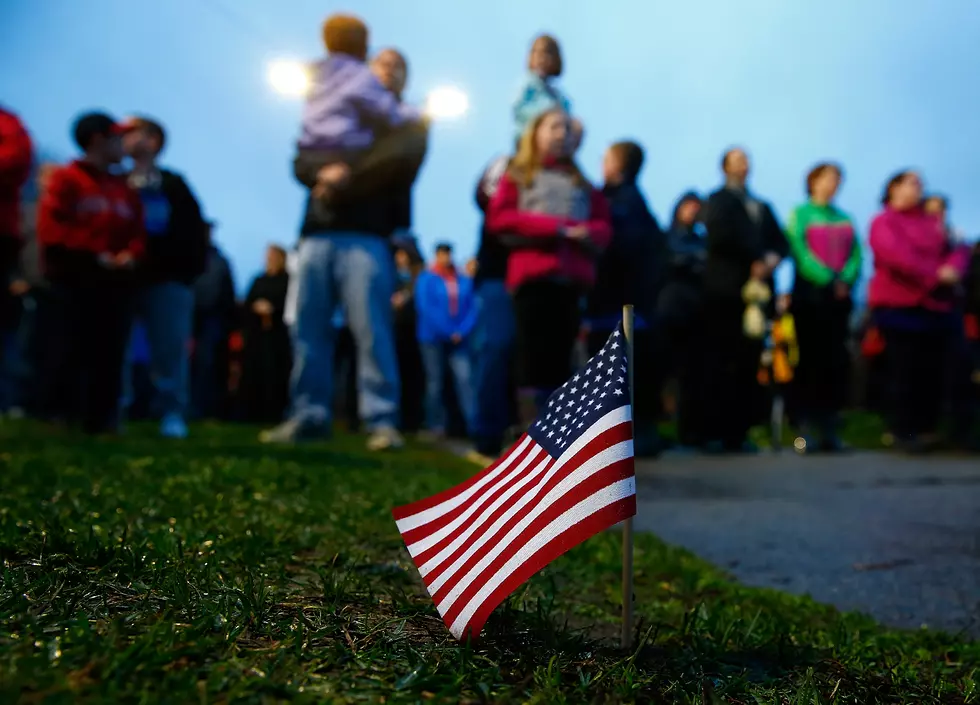![Boston Bombing Suspect Not Charged as an Enemy Combatant – Was the Right Decision Made? [POLL]](http://townsquare.media/site/385/files/2013/04/chacha.jpg?w=980&q=75)
Boston Bombing Suspect Not Charged as an Enemy Combatant – Was the Right Decision Made? [POLL]
Legal experts and politicians are chiming in by the dozens on the all news channels as to whether or not Boston bombing suspect Dzhokhar Tsarnaev should have been treated as an enemy combatant, and the analysis could make your head spin.
As of this writing, the Justice Department has announced that he will be charged with one count of conspiring and using a weapon of mass destruction resulting in death, and one count of malicious destruction of property; which, if convicted of the charges, could bring a sentence of death.
No one will be too displeased to hear that.
The decision to charge Tsarnaev in civilian court put an end to speculation that he would be charged as an enemy combatant, a designation sometimes used against terrorists.
White House spokesman Jay Carney said the decision not to treat Tsarnaev as an enemy combatant is "absolutely the right way to go and the appropriate way to go."
Carney said that because Tsarnaev is a naturalized U.S. citizen, he cannot be tried by a military commission.
"And it is important to remember that since 9/11 we have used the federal court system to convict and incarcerate hundreds of terrorists," Carney said.
The thing that makes me skeptical is how legislators jumped into the fray to politicize the event.
You would think they would know the law.
A group of Republican lawmakers is demanding the alleged Boston Marathon bomber be tried as an enemy combatant — a classification that would bar Tsarnaev from invoking pesky rights as a U.S. citizen — such as the right to a lawyer and the right to remain silent.
If Tsarnaev is considered an enemy combatant, interrogators can extract information quickly — without the presence of a lawyer.
“We need to find out: does he know anything about a future attack?’’ Sen. Lindsey Graham (R-S.C.) said Sunday on CNN’s “State of the Union.”
But senior Democrats scoffed at the notion, saying the courts could handle the case against Tsarnaev, who will likely face terrorism charges in connection with the bombs that killed three and wounded 183, as well as charges in the murder of MIT police officer Sean Collier and the shooting of transit cop Richard Donohue.
“I don’t think we need enemy combatant (status) to get all of the info we need out of him,” Sen. Chuck Schumer (D-N.Y.) said on CNN. “I don’t think we need to cross the line.”
Sen. Carl Levin (D-Mich.) said Saturday he doubted the Tsarnaev brothers were part of a broader cell and questioned whether the controversial status might present problems for the prosecution.
“To hold the suspect as an enemy combatant under these circumstances would be contrary to our laws and may even jeopardize our efforts to prosecute him for his crimes” in a court, Levin said.
But the group of hawkish Republicans, including Graham, insists Tsarnaev, 19, meets the definition of an enemy combatant — a designation traditionally assigned to members of a declared enemy of state or a terror group during a time of war.
“The accused perpetrators of these acts were not common criminals attempting to profit from a criminal enterprise, but terrorists trying to injure, maim and kill innocent Americans,” wrote Graham, Sen. John McCain (R-Ariz.), Sen. Kelly Ayotte (R-N.H.) and Rep. Pete King (R-L.I.).
“The suspect, based upon his actions, clearly is a good candidate for enemy combatant status. We do not want this suspect to remain silent.”
This is the time when armchair lawyering begins.
Those of us laypeople who really know very little as to how the law works are given to emotion.
And it’s hard not to be swayed by emotion.
After all, isn’t one of the allegations against Tsarnaev that he left his backpack that exploded by the feet of the youngest bombing victim, 8 year old Martin Richard?
Just that thought alone makes you want to see Tsarnaev die a brutal death.
However, if Carney is correct; you have to believe that justice will be served.
If you don’t, we’d like to hear why.
Do you feel the decision not to charge Dzhokhar Tsarnaev as an enemy combatant was the right one?
More From New Jersey 101.5 FM








